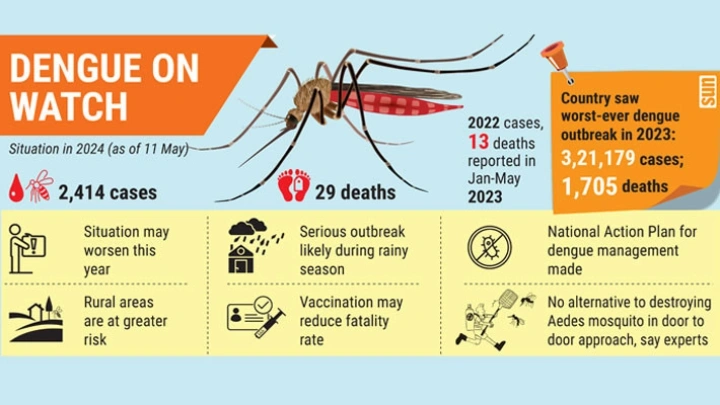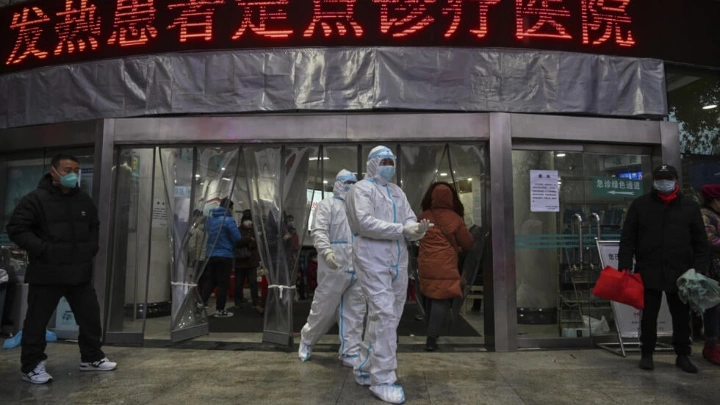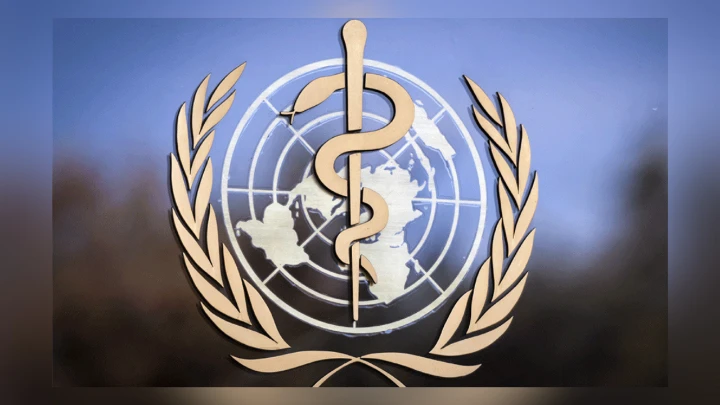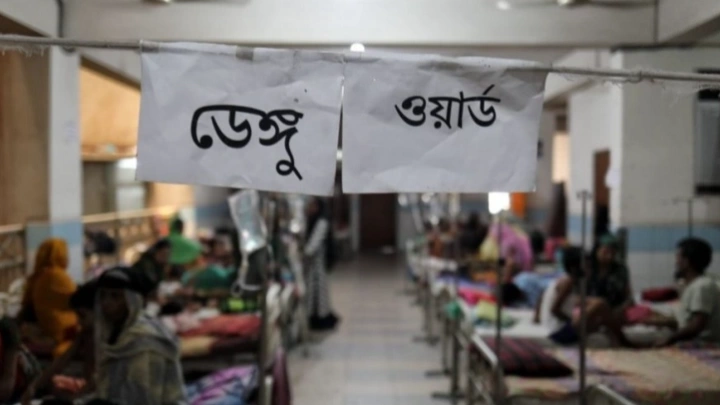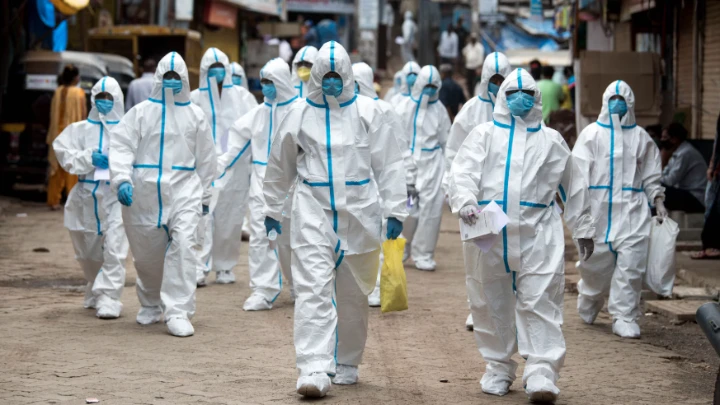Pre-monsoon dengue cases whisper danger this year too
DailySun || Shining BD
Dengue fever is shaping up to be a serious public health concern in Bangladesh again in 2024 as the numbers of cases and deaths reported as of 11 May this year have surpassed those of the first five months of last year that saw the country’s worst-ever dengue outbreak.
According to DGHS data, 2,414 dengue cases and 29 deaths were reported in the country between 1 January and 11 May this year. Of the total, 17 cases were reported in the past 24 hours leading up to 8am on Saturday.
The country reported a record 3,21,179 cases and 1,705 deaths last year. It is now considered a dengue-endemic nation, with the virus transmitting year-round.
Health officials brace for possible surge in dengue cases
Health experts fear the situation could worsen significantly this year, particularly in rural areas, due to the spread of the Aedes mosquito, the vector that transmits dengue.
They warn that a serious outbreak is likely during the rainy season if extensive measures are not taken immediately to control the mosquito population.
“We are taking necessary preparations to ensure proper treatment for dengue patients, considering the worst situation,” said Dr Sheikh Daud Adnan, director (Disease Control) of Directorate General of Health Services (DGHS), speaking to the Daily Sun. “We will be able to face any type of situation if it gets worse.”
Daud Adnan informed that the health authorities have already developed a “National Action Plan for dengue management” to tackle the outbreak across the country this year.
A pre-monsoon survey conducted by the Directorate General of Health Services (DGHS) from 17 April to 26 April has found a high density of Aedes mosquitoes in both Dhaka North and South city corporations. The survey findings are expected to be released this week.
The survey identified under-construction buildings and vacant plots as primary breeding grounds for mosquito larvae and adults.
Furthermore, similar surveys conducted in various districts across the country revealed a significant presence of Aedes mosquitoes in Chattogram city, Barishal city, Narayanganj city, Gazipur city, Cox’s Bazar district headquarters, and Chandpur district headquarters.
Meanwhile, DGHS high officials held a meeting with all directors and superintendents of public hospitals on Thursday and issued instructions for preparations to confront the potential dengue crisis, according to meeting sources.
Minister emphasises source reduction, availability of supplies
Speaking to reporters on Wednesday, Health and Family Welfare Minister Dr Samanta Lal Sen stressed the importance of source reduction as a key strategy in fighting dengue.
“Stopping dengue at the source is vital to fight against the viral dengue disease,” he said.
He assured there would be no shortage of saline solution this time around, adding, “I have had a meeting with pharmaceutical companies, and they will not increase the price of saline and medicine.”
Aedes mosquitoes pose threat as rainy season approaches
Bangladesh experienced transmission by both Aedes aegypti and Aedes albopictus mosquitoes last year, with dengue cases reported in all 64 districts.
Health experts are concerned that dengue cases may rise significantly during the upcoming rainy season and could spread to different parts of the country due to travel by infected individuals.
“Huge movement of people happens in the country during Eid. If the dengue cases rise ahead of Eid-ul-Azha then the infection may also transmit to different areas across the country,” said Dr Daud Adnan.
Speaking to the Daily Sun, Dr Khalilur Rahman, an entomologist with the DGHS, explained that temperatures between 25 degrees Celsius and 29 degrees Celsius are ideal for Aedes mosquito breeding. “The density of Aedes mosquito will increase during rainy weather, which will increase the risk of transmission of the dengue disease and cases,” he added.
Health directorate prepares for potential outbreak
“It is difficult to predict the dengue situation as the disease transmission depends on the existence of the disease vector and their behaviour,” said Dr Shyamol Kumer Das, deputy programme manager (malaria and Aedes transmitted disease) of the DGHS.
“We remain alert as the number of infections is already high this year compared to previous years.”
Describing the health directorate’s preparedness plan, he said dengue test kits have already been distributed to hospitals nationwide. Hospitals have been instructed to stay prepared, and focal persons have been designated at each facility to manage any situation related to the viral disease.
Local authorities urged to step up mosquito control efforts
In a recent meeting of the National Committee for Prevention of Mosquito-borne Diseases, the local government, rural development and cooperatives (LGRD) ministry directed all local government units to take “effective” measures to eliminate the Aedes mosquito population, according to ministry sources.
Noted entomologist Dr Kabirul Bashar, a zoology professor at Jahangirnagar University, predicted a rise in dengue cases outside Dhaka city this year compared to previous years, given the confirmed presence of Aedes mosquitoes in various districts.
“Door to door approach is must to control the dengue situation of the country as the local government units particularly the city corporations have to apply search and destroy method to destroy the Aedes mosquito,” he said.
Vaccines seen as important preventive measure
Talking to the Daily Sun, Prof Dr Saif Ullah Munshi of the Department of Virology at Bangabandhu Sheikh Mujib Medical University (BSMMU) stressed the importance of vector control.
“If the vector is not controlled, dengue may take a serious turn this year too. Fatality also may increase due to infection with different serotypes,” he warned.
He advocated for the inclusion of dengue vaccines in preventative measures, stating, “Apart from controlling vector, dengue vaccine is now highly recommended to prevent the disease. So, urgent action should be taken to incorporate vaccine in the preventive measures to keep the situation under control.”
Dhaka city corporations under scrutiny for mosquito control efforts
Officials of the Dhaka South and North city corporations claim to be carrying out awareness programmes and anti-mosquito drives, including fogging, to eliminate Aedes mosquitoes.
However, sources report a lack of coordination among authorities concerned, and anxieties linger regarding the effectiveness and sufficiency of current mosquito control measures.
Shining BD

